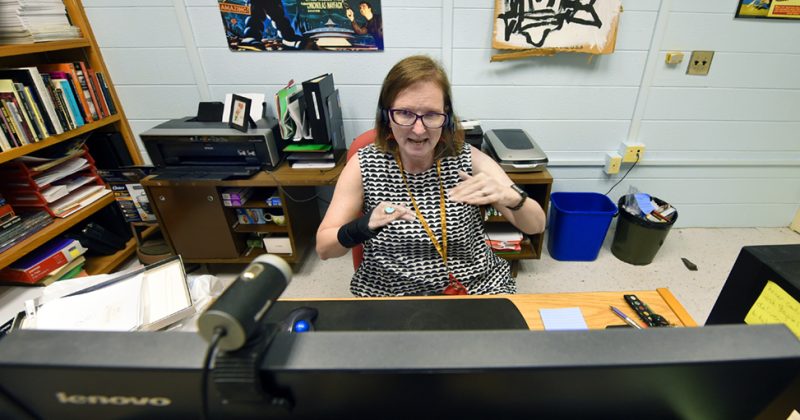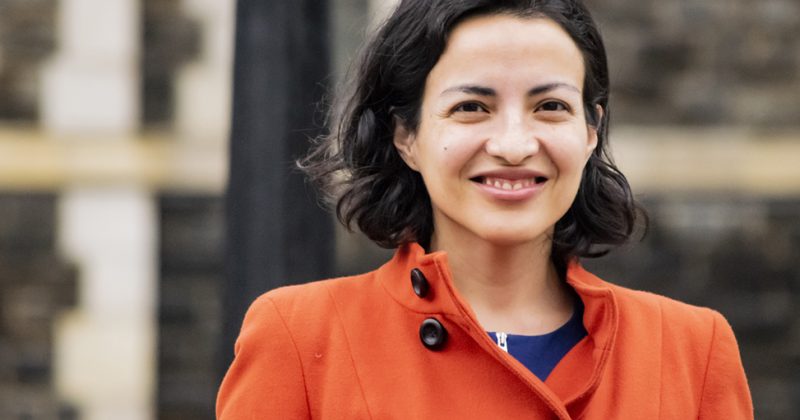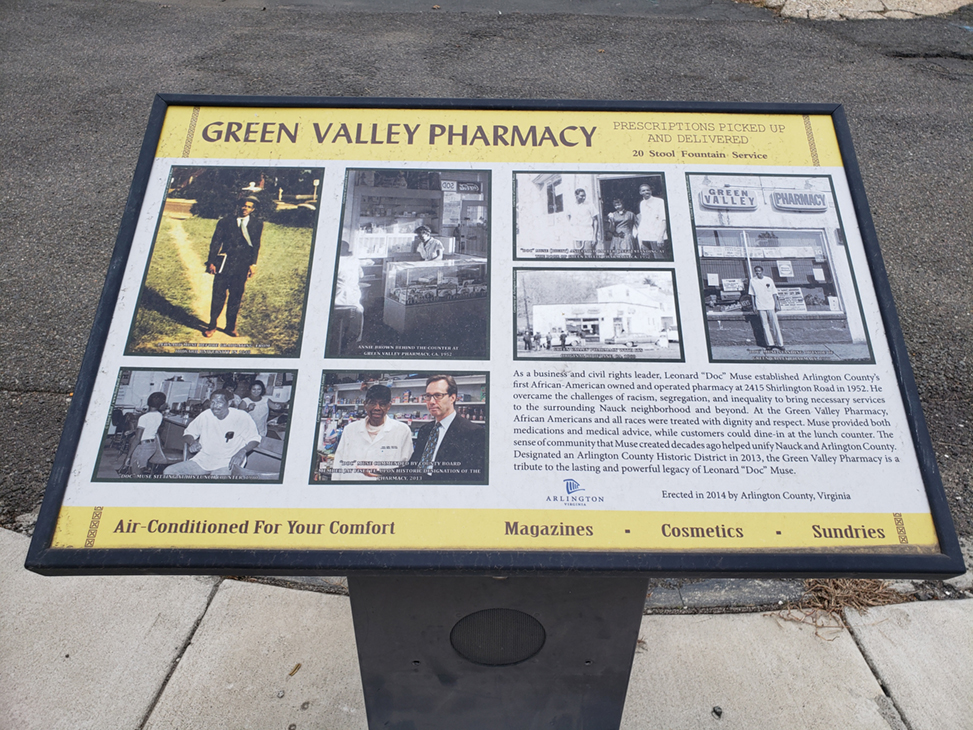
Historical marker of ‘Green Valley Pharmacy’ in the historically Black community in Arlington, Virginia.
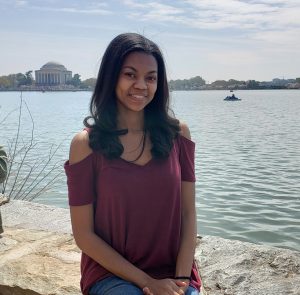
Graduate student Moriah James was attending the 2019 Black Communities Conference co-chaired by her faculty adviser, Karla Slocum, when she met a panelist who was presenting on a neighborhood in Arlington, Virginia, called “Nauck” or Green Valley. (See profile on Karla Slocum.)
That name rang a bell. James texted her dad and asked: “Do we have family in Green Valley?”
His “yes” answer would lead James, a Ph.D. student in anthropology, to pursue a new research project on this historically Black community and the ingenuity and perseverance of its people, including its local entrepreneurs.
“It was an economically stratified community, which is why I want to study it; I’m interested in the intersections of class and race,” James said. “Hearing stories of prosperity, how people have built and maintained wealth in this all-Black enclave is exciting to me.”
James received a Southern Futures Award to pursue her research, which will involve interviews with some of her family members. Although COVID-19 prohibited her from returning to Green Valley this past summer, she is conducting interviews remotely with residents.
“Since some of Green Valley’s business owners are older and have passed away, I’m also talking to the next generation and getting stories through them and asking them what values their parents instilled in them,” she said. “What have they learned?”
James pairs her interests in historically Black communities with work that helps “decolonize” museums in their portrayals of heritage and history. She was an intern in 2018 at the Smithsonian’s National Museum of African American History and Culture, and also attended the Association of African American Museums conference that same year.
“I learned so much from people of different backgrounds, and I got to see what goes into exhibit planning and writing museum research,” said James, who published a piece on entrepreneur Madam C.J. Walker and her line of cosmetics and hair care products for Black women on the Smithsonian museum’s website. “Sizzle” features Annie Turnbo Malone, Madam C.J. Walker and “the complicated history of the hot comb.”
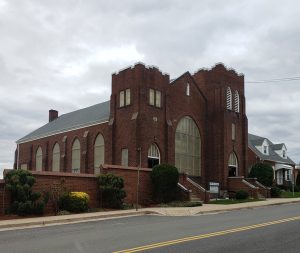
James has always loved studying different cultures; as an undergraduate at the University of Maryland she spent time cataloguing artifacts in archaeology labs and worked on an oral history project for the College Park City Council on two historic neighborhoods.
“My interest in material culture and the past led me to my love of archival research. Instead of uncovering buttons or glass pieces [through archaeological fieldwork], I enjoy uncovering accounts in the archives from people who never realized their stories would become a part of history,” she said.
James said her work fits squarely with the mission of Southern Futures to “Reimagine the American South.” It’s a South that must focus on the strengths of different communities, she added.
“I want to uncover the stories about African Americans that have not always been told, a future that includes a narrative that talks about Blackness in a positive light,” James said. “I’m hoping my Green Valley project will contribute to stories of African Americans not just surviving but thriving.”
“We must remember where we came from, but we must also look forward.”
*Editor’s note: In spring 2021, James received a prestigious National Science Foundation Graduate Research Fellowship to support doctoral research, an ethnography “on the Black elite and Black elite identity formation.”
Learn more about Southern Futures.
By Kim Weaver Spurr ’88
Read more stories about Southern Futures:
Southern Futures: Diverse voices for a changing region
Southern Futures: Vulnerable lives on the Matanzas River
Southern Futures: Cultural activism and the fate of Johns Island
Southern Futures: Chief Hope Officer
Southern Futures: Voices of resilience and recovery in Robeson County
Poet Tyree Daye was featured in a Southern Futures podcast.
Published in the Fall 2020 issue | Features


